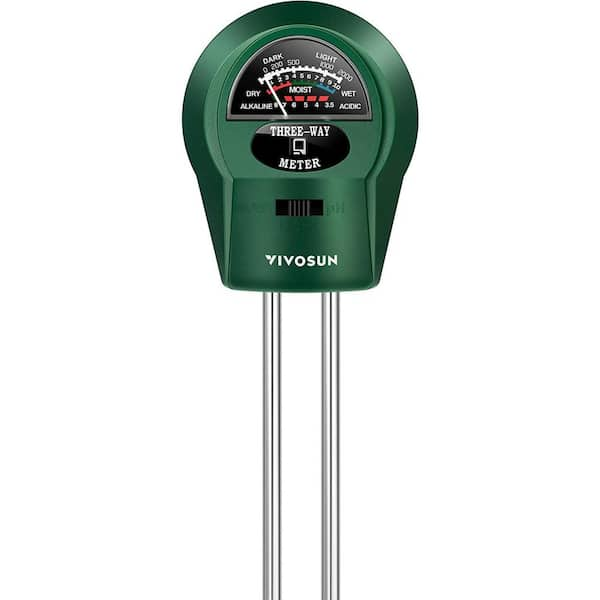The Ultimate Guide to Moisture Meters: A Comprehensive Summary and How They Can Conserve You Cash
In the world of building maintenance, construction, and various industries, the relevance of properly measuring dampness levels can not be overemphasized. Wetness meters serve as essential tools in detecting and monitoring moisture material in products, helping in avoiding expensive damages and ensuring the top quality of products. Understanding the nuances of various kinds of moisture meters, their applications, and the potential cost-saving benefits they use can be a game-changer for professionals and organizations alike. Finding exactly how these gadgets can not only streamline procedures but likewise add to monetary cost savings is a trip worth starting.
Sorts Of Wetness Meters
Various types of dampness meters are readily available for various applications in numerous markets. One typical type is the pin-type dampness meter, which measures the electrical resistance between 2 pins put right into a material. This kind appropriates for wood, drywall, and various other structure materials. Pinless wetness meters, on the other hand, usage electromagnetic sensing unit plates to check a bigger location without causing damage to the product's surface. Moisture Meter. These meters are perfect for quickly examining dampness degrees in huge areas such as walls and floorings.

Infrared moisture meters gauge the thermal residential or commercial properties of a product to determine its wetness material non-invasively, making them valuable for applications where pin or pinless meters may not be ideal. Recognizing the various types of wetness meters offered can assist sectors select the most suitable tool for their specific dampness measurement requirements.

Benefits of Utilizing Moisture Meters
Moisture meters supply vital advantages in properly keeping an eye on and assessing dampness degrees in varied products and settings. One of the main benefits of using wetness meters is the prevention of potential damage triggered by excess wetness.
In addition, using wetness meters can lead to raised power efficiency. In agricultural setups, moisture meters play a crucial role in maximizing crop yields by making it possible for farmers to keep track of dirt wetness degrees and make informed irrigation decisions.
Just How to Pick the Right Dampness Meter
When picking a dampness meter, it's crucial to make sure that the meter is ideal for the certain product you will certainly be screening. Different products have varying electric properties that can affect moisture analyses, so picking a meter developed for your product is critical for accurate outcomes. By meticulously reviewing these variables, you can pick a moisture meter that fulfills your demands and gives accurate wetness dimensions for your projects.
Proper Techniques for Wetness Meter Use

Expense Savings Via Dampness Meter Applications
Just how can the calculated usage of moisture meters bring about substantial price savings throughout various industries? Moisture meters play a crucial role in expense savings by protecting against possible damage and ensuring top quality control in various industries. In the agriculture industry, moisture meters aid in establishing the ideal time for collecting crops, preventing over-drying or excess moisture that can influence the final item's top quality. This exact monitoring aids farmers stay clear of unnecessary losses and optimize their yield.
In a similar way, in building and construction, dampness meters help stop costly damages by discovering moisture degrees in building products, such as timber or concrete, which can cause structural concerns otherwise resolved promptly. By determining issue areas early, contractors can take rehabilitative steps to stay clear of substantial repairs or substitutes, inevitably saving time and money.
In addition, in the food processing sector, moisture meters are vital for checking product top quality and making certain conformity with safety guidelines. By accurately determining moisture material in food products, manufacturers can protect against putridity, preserve freshness, and decrease waste, resulting in substantial price savings. Generally, the tactical application of wetness meters is a valuable investment that can result in significant price decreases and enhanced performance across various sectors.
Final Thought
In verdict, dampness meters are beneficial devices for identifying and determining wetness levels in different materials. By utilizing the best moisture meter and following correct methods, More hints individuals can successfully stop expensive damages triggered by excess moisture.
Wetness meters serve as indispensable tools in identifying and keeping track of moisture content in materials, helping in preventing costly damages and ensuring the top quality of items. Infrared wetness meters measure the thermal residential properties of a material to determine its dampness content non-invasively, making them useful for applications where pin or pinless meters might not be ideal.Wetness meters supply important advantages in properly analyzing and checking moisture levels in diverse materials and settings. In agricultural setups, dampness meters play an important role in enhancing plant yields by allowing farmers to keep track of soil wetness degrees and make informed watering choices.In conclusion, dampness meters are useful devices for determining and discovering wetness levels in various materials.